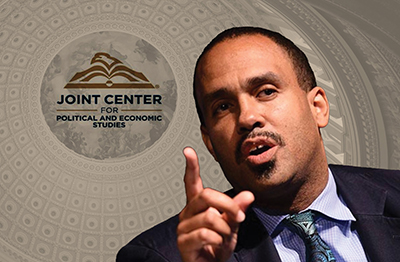WASHINGTON — In response to the passing of former U.S. Secretary of Labor Alexis Herman, the first Black person to hold the position, the Joint Center for Political and Economic Studies issued the following statement mourning her loss:
“Alexis Herman dedicated her career to advancing the rights of marginalized workers,” said Joint Center President Dedrick Asante-Muhammad. “Before her role as Secretary of Labor, she worked within late-President Jimmy Carter’s administration as director of the Department of Labor’s Women’s Bureau, became a key figure in the Democratic Party through her work on Jesse Jackson’s presidential campaigns and as chief of staff at the Democratic National Committee, and made history as the first Black person and fifth woman to serve as Secretary of Labor. We will continue to honor her unwavering commitment to public service and workers’ rights and her lifelong dedication to racial and economic justice. Her legacy will endure for generations to come. Our thoughts and prayers go out to her family and loved ones during this difficult time.”
As Secretary of Labor, Herman championed fair labor practices, workers’ rights, and economic justice, leaving a lasting impact on Black communities and the nation. Her leadership helped pave the way for a more equitable future for all working families. The Department of Labor is tasked with promoting and protecting the welfare of U.S. workers by setting and enforcing policies that affect wage earners, job seekers, and retirees.
“We mourn the passing of Alexis Herman, a true trailblazer for workers’ rights and economic equality,” said Joint Center Workforce Policy Director Dr. Kayla Elliott. “As the first Black person to serve as U.S. Secretary of Labor, nominated during President Bill Clinton’s second term, she was a visionary leader and tireless activist for Black workers. She advanced critical initiatives that led the nation’s unemployment rate to drop to a 30-year low. She worked to strengthen protections for overseas workers, supported minimum wage increases, and helped pass the Workforce Investment Act of 1998. Throughout her well-established and fruitful career, she worked tirelessly to improve the socio-economic standing of Black workers and championed policies that advanced our rights. We are deeply grateful for her leadership and activism, and we extend our heartfelt condolences to her family and loved ones.”
About the Joint Center for Political and Economic Studies
The Joint Center for Political and Economic Studies, America’s Black think tank, provides compelling and actionable policy solutions to eradicate persistent and evolving barriers to the full freedom of Black people in America. We are the trusted forum for leading experts and scholars to participate in major public policy debates and promote ideas that advance Black communities. We use evidence-based research, analysis, convenings, and strategic communications to support Black communities and a network of allies.

